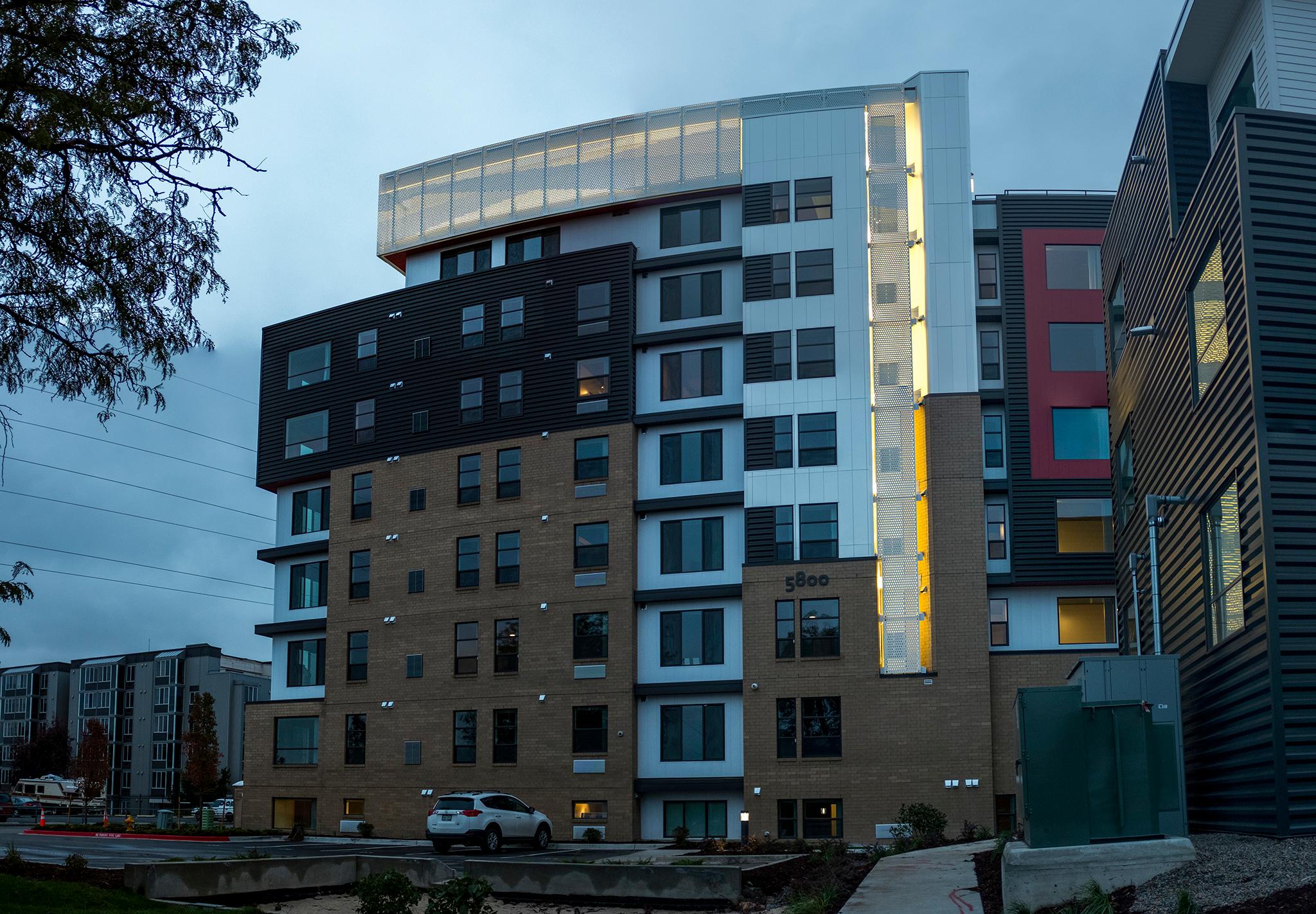Lakewood voters will decide this summer on an initiative aimed at controlling growth that proponents say will make the Denver suburb more livable and opponents say isn't the right answer for concerns about traffic, affordable housing and preserving green space.
"Finally," Cathy Kentner, who helped lead a petition drive two years ago for the Strategic Growth Initiative, said after Lakewood City Council voted Monday to hold a July 2 special election on the proposal.
Kentner and other organizers had collected thousands of signatures to get the proposal on a ballot or adopted by city council. Their effort was delayed by a suit filed by Steve Dorman, who has been active in Jefferson County politics and expressed concern about the proposal's possible impact on property rights.
A Jefferson County judge had dismissed Dorman's suit in a ruling late last year. Dorman appealed. He said Tuesday his appeal failed earlier this year and he had not yet decided whether to continue to pursue his challenge in court or turn his attention to campaigning against the proposal.
The initiative would limit new home construction to 1 percent per year and require the city council to approve projects with 40 units or more. The ballot language outlines a proposed process for determining at the start of the year how many building permits for housing can be issued -- 1 percent of the existing stock, with exceptions for, for example, proposals to build in areas determined to be "blighted." According to the ballot language, the initiative is aimed at preserving the "unique environment and exceptional quality of life" in the city of about 150,000 people; encouraging the preservation of large open space areas and the development of "distressed areas;" ensuring that infrastructure and services are not stretched thin; protecting the environment and avoiding "increases in crime and urban decay associated with unmanaged growth."
Attempting to control growth has been a not uncommon reaction to change. It's been a major campaign theme ahead of May 7 municipal elections in neighboring Denver, which has seen unprecedented growth in recent years, putting pressure on transportation infrastructure, sending housing prices up and leading to displacement from gentrification. One Denver city council candidate has suggested suspending all new building permits for 24 months.
Last year Daniel Hayes proposed a 1 percent cap for at least two years for not just Lakewood but all of Jefferson County as well as Adams, Arapahoe, Broomfield Boulder, Denver, Douglas, El Paso, Larimer and Weld. Hayes helped Golden put similar limits in place in the '90s, and Boulder also has longstanding curbs on growth. Hayes claimed taking such a step across a wider region would mean higher wages, keep housing prices stable by discouraging people from moving to Colorado and discourage unauthorized immigrants who work in the construction industry. Hayes's proposal never made it to the ballot because he waited to long to start gathering petition signatures.
In Lakewood, Kentner said her initiative "is not stopping growth. It's about having a smart, strategic plan."
Charley Able, a Lakewood city councilmember, said his city has "been growing for 20 years without mitigating that growth. As a result, we have growth that is less than smart."
"We need to target that growth, and we need to mitigate the infrastructure that we've left behind," Able told CPR.
Lakewood Mayor Adam Paul said concerns about the impact of growth can and are being addressed in his city, noting recent moves such as requiring developers to include more open space around apartment buildings. He also noted that last year Lakewood voters approved lifting limits set by the Taxpayer's Bill of Rights, or TABOR, to allow the city to spend $12.5 million in tax revenue on such things as improvements to parks, sidewalks and traffic signals.
Kentner's proposal, "started a really important conversation," but goes too far, the mayor said.
"I worry about affordability. I worry about predictability. I worry about unintended consequences," he said, adding that if the initiative passed he expected it to face further court challenges.
Kentner said opponents were resorting to "scare tactics" and that she was confident voters will "make a decision in the best interest of our community."
Carrie Makarewicz, an assistant professor in the University of Colorado Denver's College of Architecture and Planning, has studied anti-growth measures and what she sees as artificial caps on development.
The impact in Boulder, she said, has been a housing shortage that only exacerbates one of the main issues that irritate people who are seeing their cities grow.
Boulder has "terrible traffic because everyone has to commute in because they can't afford or even find housing in Boulder," she said.
"There are some real concerns. But their solutions and targets are wrong," she said of the proponents of anti-growth measures.
"Growth is inevitable. People are having babies. People are living longer. And we cannot say people can't move to Colorado," she said. "It's just shuffling the decks on the Titanic to say, 'We don't want growth in our community."
Instead, Makarewicz suggestions include encouraging density, a way of both conserving open space and cutting down on commuting time. She also recommended managing growth across regions so that development is directed to places that can best absorb it. Spending on infrastructure has to keep up as populations swell, and limiting growth could mean limiting the tax revenues cities need to improve their infrastructure, she said.
Spending in Colorado is constrained by TABOR, legislation passed in 1992 that prohibits increasing taxes without a vote of the people and limits how much revenue government can spend. The 1982 Gallagher Amendment to the state constitution, meanwhile, has hit property tax revenues. TABOR and Gallagher might be better targets than growth for people looking for ways to cope with change, Makarewicz said.














